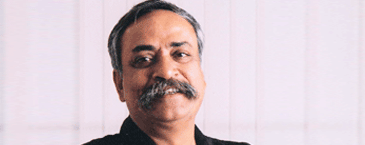Piyush Pandey on the E&Y report: "I told you so"
"My healthy respect for research is well-known. You guys are lucky. You get paid for something I said 20 years ago."Piyush Pandey, executive chairman and creative director, south Asia, Ogilvy gave the keynote address at the launch of Ernst & Young’s 'The New Market Shehers’ report.
by Campaign India Team

To continue enjoying this content, please sign in below. You can register for free for limited further access or subscribe now for full access to all out content.
Sign In
Trouble signing in?
Register for free
✓ Access limited free articles each month
✓ Email bulletins – top industry news and insights delivered straight to your inbox
Subscribe
✓ All the latest local and global industry news
✓ The most inspirational and innovative campaigns
✓ Interviews and opinion from leading industry figures
